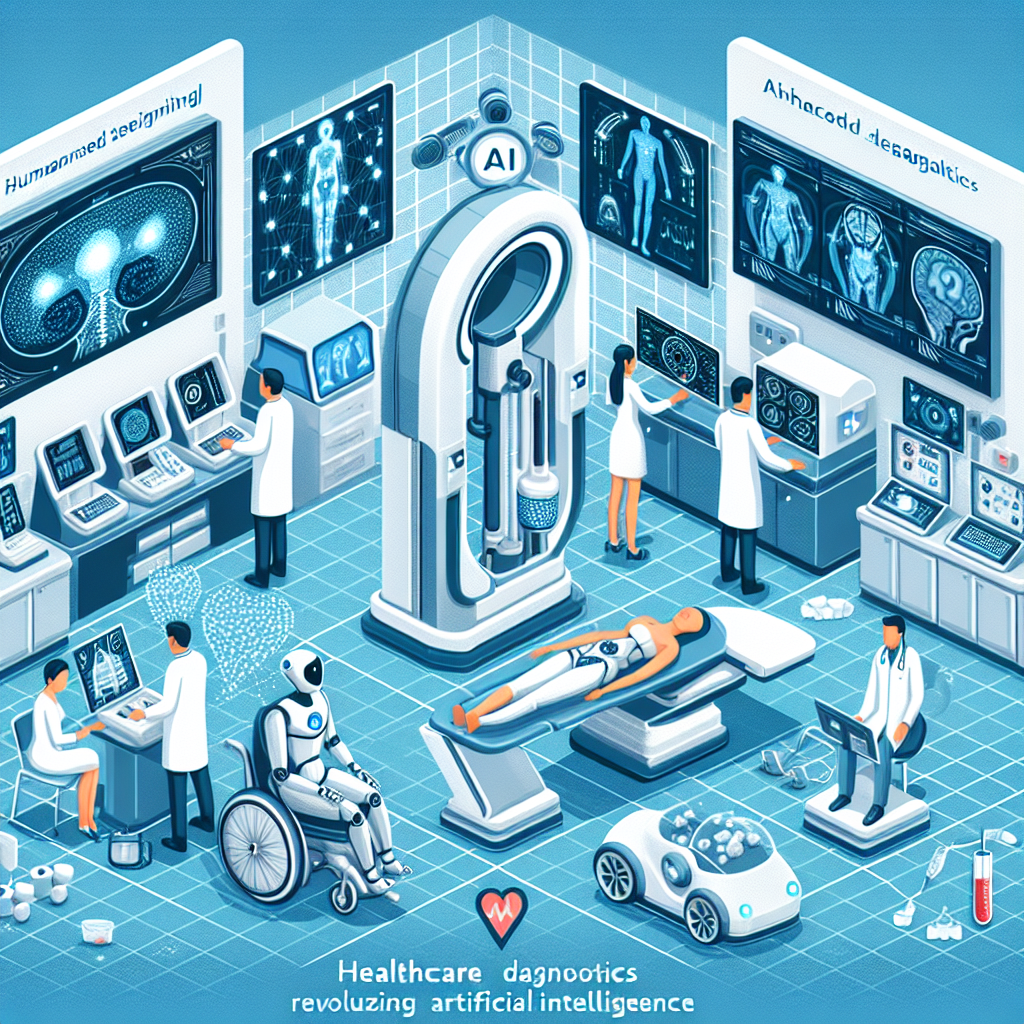Artificial Intelligence (AI) has revolutionized the healthcare industry in recent years, particularly in the field of diagnostics. AI tools are being used to analyze vast amounts of medical data and provide accurate and timely diagnostic information to healthcare professionals. This has the potential to greatly improve patient outcomes and reduce healthcare costs. In this article, we will explore how AI tools are improving healthcare diagnostics and the impact they are having on the industry.
One of the key ways in which AI tools are improving healthcare diagnostics is through the analysis of medical images. AI algorithms can be trained to recognize patterns and anomalies in medical images such as X-rays, MRIs, and CT scans. This can help radiologists and other healthcare professionals to quickly and accurately diagnose conditions such as cancer, fractures, and other abnormalities.
AI tools can also be used to analyze genetic data and identify patterns that may indicate a predisposition to certain diseases. This can help healthcare professionals to provide personalized treatment plans and interventions to patients based on their genetic makeup.
In addition to image and genetic analysis, AI tools are also being used to analyze patient data such as medical histories, lab results, and other clinical information. By analyzing this data, AI algorithms can identify trends and patterns that may indicate underlying health conditions or predict future health outcomes. This can help healthcare professionals to make more informed decisions about patient care and treatment options.
One of the key benefits of using AI tools in healthcare diagnostics is the speed and accuracy with which they can process and analyze vast amounts of data. This can help to reduce the time it takes to make a diagnosis and can ensure that patients receive the appropriate treatment in a timely manner.
Another benefit of using AI tools in healthcare diagnostics is the potential to reduce errors and improve the accuracy of diagnoses. AI algorithms can be trained on large datasets of medical information, which can help to identify subtle patterns and anomalies that may be missed by human clinicians. This can help to reduce misdiagnoses and ensure that patients receive the most appropriate care.
AI tools are also helping to improve the efficiency of healthcare diagnostics by automating routine tasks and freeing up healthcare professionals to focus on more complex cases. This can help to reduce the workload on healthcare professionals and ensure that patients receive the care they need in a timely manner.
Overall, AI tools are having a significant impact on healthcare diagnostics and are helping to improve patient outcomes, reduce healthcare costs, and increase efficiency in the healthcare industry. As AI technology continues to advance, we can expect to see even greater improvements in healthcare diagnostics in the years to come.
FAQs:
Q: Are AI tools replacing healthcare professionals in diagnostics?
A: AI tools are not replacing healthcare professionals in diagnostics, but rather augmenting their abilities and providing them with valuable insights to make more informed decisions.
Q: How accurate are AI tools in healthcare diagnostics?
A: AI tools have been shown to be highly accurate in healthcare diagnostics, with studies demonstrating that they can outperform human clinicians in certain tasks.
Q: Are AI tools secure when it comes to handling sensitive patient data?
A: AI tools are designed to comply with strict data privacy and security regulations to ensure the protection of sensitive patient information.
Q: How are AI tools trained to analyze medical data?
A: AI tools are trained using large datasets of medical information that have been labeled by healthcare professionals to teach the algorithms to recognize patterns and anomalies in the data.
Q: What are the limitations of AI tools in healthcare diagnostics?
A: While AI tools have shown great promise in healthcare diagnostics, there are still limitations in terms of their ability to handle complex and rare cases that may require human expertise.

